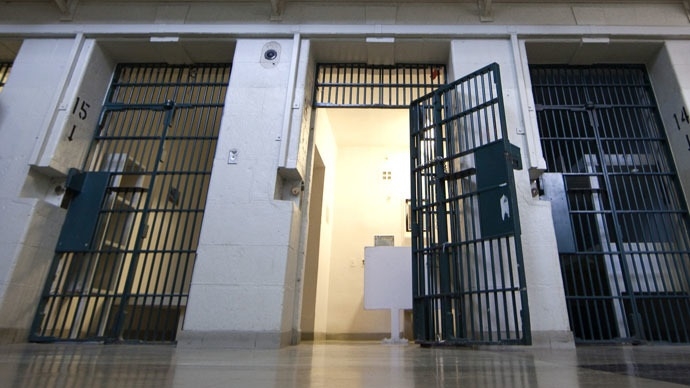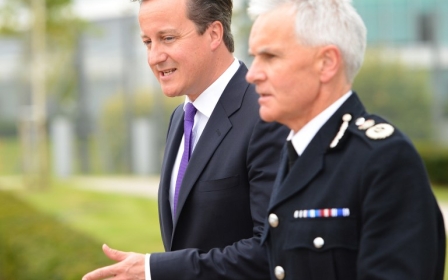Prisoners who promote ‘terror’ to be isolated under UK plans

The UK government has announced plans to counter inmates who it says promote terror and violence in prisons.
The moves, unveiled on Monday, include banning offensive literature and removing prisoners from worship if they promote beliefs deemed against "fundamental British values".
The justice ministry said that radicalisation in prisons was a growing threat that needed to be treated as an "urgent priority".
"For the highest risk terrorists and radicalisers, the government will use all the measures at its disposal, including separation from the mainstream prison population, to contain their risk and prevent the spread of poisonous ideologies.
"Extremists cannot be allowed to prey on the vulnerable," the ministry said in a response accompanying the review.
Eight measures will be introduced include greater vetting of Muslim prison chaplains and tighter controls on worship. Prison governors will also be allowed to remove Muslims from communal prayer in jails.
It is hoped that isolating prisoners who act as "self-styled emirs" will stem further radicalisation. There will also be a review of staff training and the removal of literature considered offensive.
"We will ensure that governors use their existing powers to remove prisoners from corporate worship where they are behaving subversively or promoting beliefs that run counter to fundamental British values," the ministry of justice said.
"We do not, however, believe it is the right course of action at present to alter the provision of worship more generally or, for example, to pursue in-cell alternatives."
The report also criticised prison imams, many of whom had a "weak understanding and effective approach to Islamist extremism" it said, and suggesting that the preponderance of imams from the conservative Deobandi denomination could be "problematic".
In March there was speculation that Ahtsham Ali, a top Muslim adviser, stood to lose his job for recruiting Deobandi chaplains. Michael Spurr, the head of the National Management Offenders Service (NOMS) - for which Ali selects imams in the prison service - called such reports “inaccurate, misleading and disgraceful coverage”.
Review: Growing problem of 'terror' prisoners
The counter-extremism scheme comes one week after Anjem Choudary, one of Britain's most controversial clerics, was convicted of encouraging people to joining the Islamic State group.
Currently, individuals sentenced in the UK for terrorist crimes are dispersed to prisons around the country, Bloomberg News said. But the government review, led by Ian Acheson, a former prison governor, said that they pose a “growing problem”.
The team behind the "review of Islamist extremism in prisons, probation and youth justice" visited more than 60 facilities across the UK, France, the Netherlands and Spain. Only a summary is being published for security reasons.
The government has created a new department - the Security, Order and Counter Terrorism Directorate – to develop the plans.
Elizabeth Truss, the justice minister, said: "I am committed to confronting and countering the spread of this poisonous ideology behind bars," she said in an emailed statement.
In their review, researchers said some prison imams faced intimidation, while inmates were confronted with "aggressive encouragement" to convert to Islam.
The report found both Muslim and non-Muslim inmates were vulnerable to radicalisation and called for leadership to ensure Muslim prisoners could safely practise their faith.
According to official figures there are now more than 12,600 Muslims in prison in England and Wales: the figure was 8,200 a decade ago.
Middle East Eye propose une couverture et une analyse indépendantes et incomparables du Moyen-Orient, de l’Afrique du Nord et d’autres régions du monde. Pour en savoir plus sur la reprise de ce contenu et les frais qui s’appliquent, veuillez remplir ce formulaire [en anglais]. Pour en savoir plus sur MEE, cliquez ici [en anglais].





